Business Schools with an Outstanding Enterprise Resource Planning (ERP) Faculty
B-School Search
For the latest academic year, we have over 250 schools in our BSchools.org database and those that advertise with us are labeled “sponsor”. When you click on a sponsoring school or program, or fill out a form to request information from a sponsoring school, we may earn a commission. View our advertising disclosure for more details.
Enterprise resource planning (ERP) integrates the systems used by each department of a large organization, allowing for communication and collaboration. Software applications are often the focus of ERP efforts within a company, and in many cases, they are specially designed to meet the specific needs of an enterprise.
Some of the functions of an ERP system include integrating financial information; processing orders; providing insights from customer information; operationalizing and speeding up manufacturing; standardizing HR information and procurement; and facilitating government reporting. Some of the benefits of ERP systems are internal efficiency, enhanced decision-making, increased agility, and increased security.
Business professionals seeking to specialize in enterprise resource planning have the option of earning an MBA with a concentration in ERP or, if already an MBA degree holder, adding the credential through a certificate program. Online and face-to-face options exist for both pathways to ERP expertise.
Programs often combine study of ERP with training in SAP or Oracle. An ERP specialization calls for a foundation in information technology and traditional business topics, in addition to a focused study of e-commerce, business intelligence, data mining and predictive analysis, supply chain management, and enterprise systems/customer relationship management (CRM).
With the growing use of big data to inform all aspects of industry, from healthcare and public policy, to commerce and travel, a credential in enterprise resource planning can increase job seekers’ prospects for employment and long-term job stability.
For aspiring ERP professionals, there are four universities in particular with exceptional faculties: the Missouri University of Science and Technology, Lamar University, Georgia Southern University, and Penn State Behrend. Read on to discover what makes these schools unique, including profiles of ten outstanding ERP professors.
Missouri University of Science and Technology
Missouri S&T was founded almost 150 years ago. With a commitment to the values of creativity, integrity and sustainability, the university is dedicated to lifelong learning, inclusion, and its partnerships with stakeholders on campus, in the community, nation and world.
The university offers 99 degree programs within 40 areas of study, and was named among the best public universities for out-of-state students by Newsweek. Students of all majors are afforded the opportunity to do research in one of four signature research areas: smart living, advanced manufacturing, advanced materials for sustainable infrastructure, and enabling materials for extreme environments.
-

Bih-Ru Lea, PhD
Dr. Bih-Ru Lea is the director of the center for ERP at Missouri S&T and an associate professor of business and information technology. Her work has been recognized through numerous awards. In 2018 alone, she was the recipient of the Instructional Innovation Award, the Outstanding Professor Award of Excellence, the Excellence in Service to Students Award, and the Best Learning and Education Research Paper Award.
Dr. Lea’s areas of research include ERP implementation and ERP architecture, dashboard, management accounting systems, and performance measurements, among others. Professor Lea teaches courses in supply chain management systems in an ERP environment; data modeling and visualization for enterprise decision dashboards; and performance dashboard, scorecard, and data visualization. She holds a PhD in industrial management and an MPAcc in accounting, both from Clemson University.
-
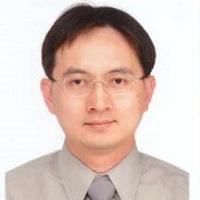
Wen-Bin (Vincent) Yu, PhD
Dr. Wen-Bin Yu is an associate professor of information science and technology and has served as assistant chair of the business and information technology department since 2011.
Dr. Yu received the of the Global Learning 2011 Outstanding Teaching Award of Excellence as well as the 2012 Outstanding Teaching Commendation Award. He holds degrees in mathematical sciences (BS), textile science (MS), management science (PhD), and computer science and engineering (PhD).
Professor Yu leads courses in the use of business intelligence, information retrieval and analysis, an introduction to data warehouses, and the essentials of data warehouses. He has published extensively on topics related to his main research interest in text/data mining, information retrieval, supply chain management, business process reengineering, and business intelligence, among others.
Lamar University, College of Business
Considered one of the “giants” of Texas history, Mirabeau B. Lamar was the second president of the Republic of Texas, the founder of public education in the state, and the man for whom Lamar University is named.
With programs in the sciences, arts, education, business, and engineering, the university offers a “personalized environment” to support student success. LU is part of the Servicemembers Opportunity Colleges (SOC) Degree Network, providing personal academic support for active military and veterans. Begun as a junior college in 1923, LU became a member of the Texas State University System in 1995. The Beaumont campus is located east of Houston, just 25 miles from the Louisiana border.
-

Kelly Weeks, PhD
Dr. Kelly Weeks is an associate professor at Lamar University, where he leads courses in the bachelor’s and master’s of business administration programs, including global logistics, strategic management, supply chains, quality management, and operations management. He has published roughly a dozen journal articles or presentations related to his work, and holds his PhD from Jackson State University, as well as his BBA and MBA from Delta State University.
Notably, he holds his Six Sigma Master Black Belt and has worked extensively with prestigious researchers from all over the country.
Georgia Southern University, Parker College of Business
A public Carnegie Doctoral institution, Georgia Southern is a unit of the University System of Georgia with three campuses: the flagship campus in Statesboro, the Armstrong campus in Savannah, and the Liberty campus in Hinesville.
Among the university’s core values are civility, kindness, and integrity, as well as social responsibility, wellness, and dedication to lifelong learning. In 2018, The Princeton Review named Georgia Southern one of the country’s top eco-friendly campuses for the eighth consecutive year. GSU has also been designated as a “military-friendly” gold school for the seventh consecutive year by the media group that publishes magazines including Military Spouse, GI Jobs, and STEM jobs.
-
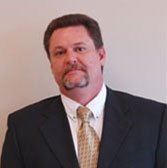
John N. Dyer, PhD
Dr. John Dyer is a professor of information systems with degrees in applied statistics (PhD), statistics (MS), business administration (MBA), Medicaid management information systems (MMIS), and finance and quantitative methods (BS).
Dr. Dyer has over 25 years of teaching experience, as well as past professional work as a procurement specialist, statistical analyst, and business manager.
Professor Dyer teaches software applications and web database development, among other topics. He is a SAP-certified business associate with SAP®ERP and a member of the Association for Information Systems. He also is an expert in a variety of computational areas such as word processing and spreadsheet applications, programming languages, database applications, web design, operating systems and networking. Notably, Dr. John Dyer is also a veteran, with 13 years of military service to his credit.
-
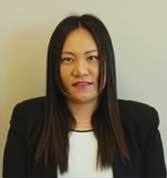
Hyo-Joo Han, PhD
Associate professor of information systems Dr. Hyo-Joo Han joined the faculty of Georgia Southern University in 2003. Professor Han teaches undergraduate and graduate courses in business applications, IT strategy and enterprise resource planning, database management, management information systems, and others.
Dr. Han is active in a variety of professional organizations, such as the Association of History, Literature, Science, and Technology (former VP), the Atlanta Chapter of the Korean Scientists and Engineers Association (current VP), and the Southern Chapter of Korean Women in Science and Engineering (former VP). Professor Han is interested in the integration of technology in consumer behavior and e-commerce, virtual teams, human computer interactions, decision support systems, and mobile computing.
Dr. Han is a SAP-certified business associate in SAP®ERP and has served on the editorial board of the Journal of Interactive Mobile Technologies since 2011.
-
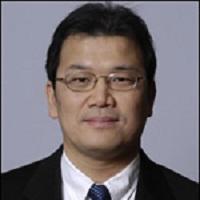
Yoris A. Au, PhD
Dr. Yoris Au has been the department chair of information systems at Georgia Southern University for the past four years. He is an associate professor with extensive professional experience in industry, consulting, and academic positions. He also has worked as a database programmer and software engineer; he started an Internet service provider company in the 1990s.
Dr. Au’s areas of specialization are big data science and technology, telecommunications and computer networks, and cybersecurity. He holds degrees in information and decision sciences (PhD), business administration (MBA), and civil engineering (BS).
Penn State Behrend
In 1973, Penn State Behrend became the first Penn State campus outside of University Park granted status as a four-year college. The campus was originally donated by Mary Behrend in honor of her late husband, one of the founders of the Hammermill Paper Company.
The landscaping of the 400-acre farm had been planned by Arthur Westcott Cowell, who had established the Landscape Architecture Department at Penn State years prior. Long recognized by environmentalists, the land was dedicated as an Arboretum in 2003. The college earned the designation as Tree Campus USA in 2017—a further testament to the beauty and uniqueness of the land and its array of native and exotic trees, many of which were acquired by the Behrends on their extensive travels.
-
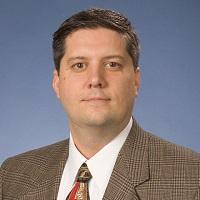
Matthew Swinarski, PhD
Dr. Matthew Swinarski is associate professor of management information systems and the MBA committee chair for AACSB accreditation at Penn State Behrend. He teaches courses in database management systems, IS strategy, and IT management.
Professor Swinarski’s research interests include ERP systems spreadsheets, spreadsheet development, project management, capability maturity model (CMM), process improvement, IS sourcing, and IS service learning. In addition to his teaching and service activities, he works as an IT consultant for companies in upstate New York.
In the past, he served as issue managing editor for the Journal of Information Technology Theory and Application. Dr. Swinarski holds degrees in management (PhD) and industrial engineering (MS) from the State University of New York and electrical engineering (BS) from Clarkson University.
Methodology
To be selected for inclusion in our list of outstanding enterprise resource planning (ERP) professors, the following criteria was used:
- University Affiliation: The professor must be associated with an ERP program at an accredited university in the U.S. and actively teaching.
- Publication: When looking at academic credentials, publication is another consideration. The professors on this list have extensive publications to their credit in peer-reviewed journals.
- Institutional & Peer Recognitions: Selected professors have been recognized by their peers and their employers as being among the top in their field. Whether they received awards for excellence in teaching, special recognition for their publications, or notable grants and research funding, these professors have demonstrated their commitment to the field of enterprise resource planning.
- Professional Commitment: In addition to teaching and research obligations, the professors on this list have gone above and beyond in terms of leadership and professional contributions. Some have been selected to be faculty deans or program directors, while others have become leaders of professional organizations.
